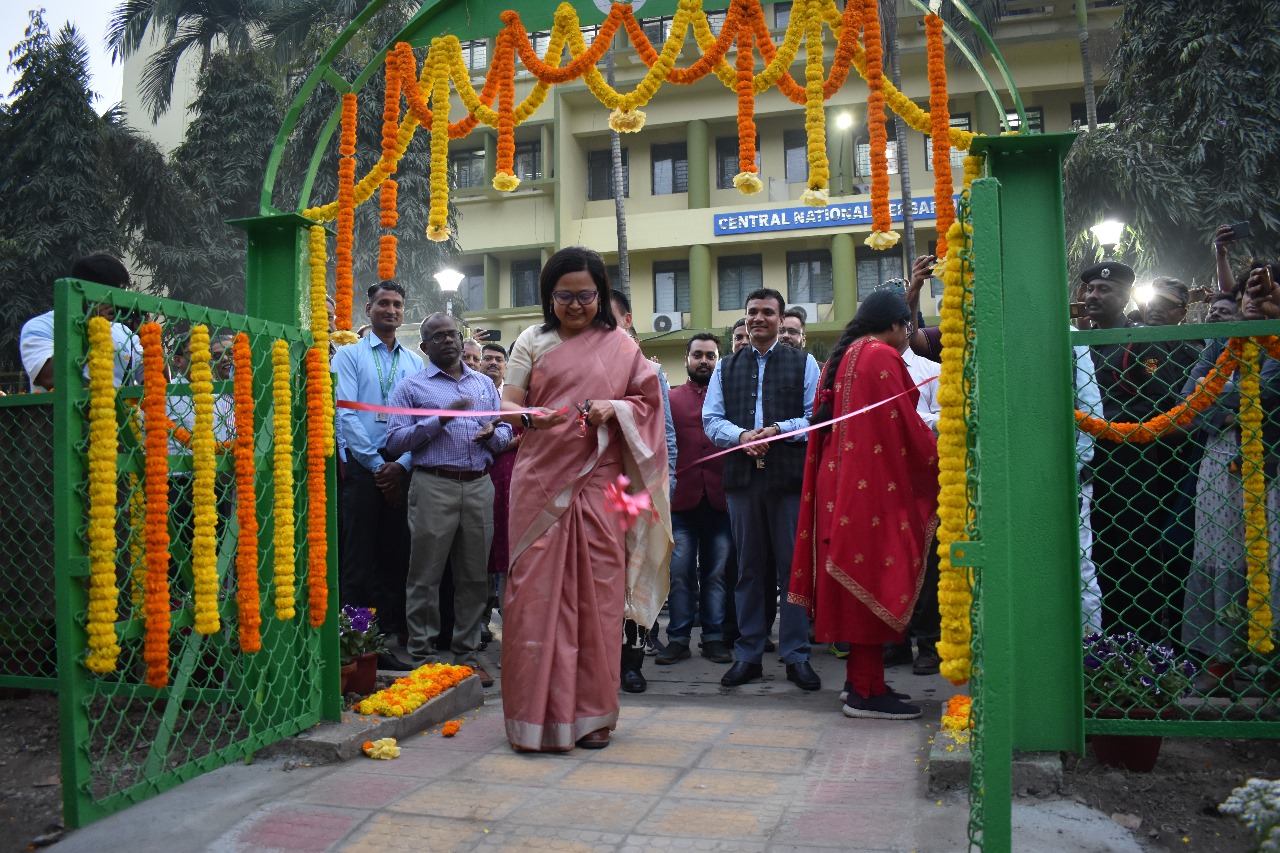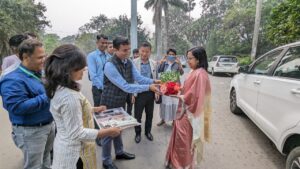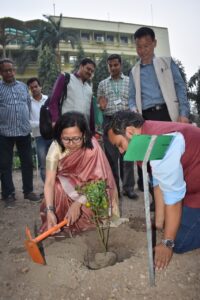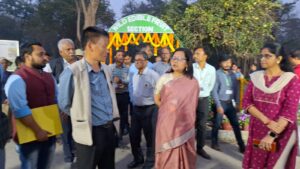
The Wild Edible Fruit Section at the Botanical Survey of India (BSI), located within the AJC Bose Indian Botanic Garden (Division number XXI), Howrah, is a significant milestone, inaugurated by Smt. Nameeta Prasad, Joint Secretary, Ministry of Environment, Forest, and Climate Change (MoEF&CC) Govt. of India, on February 16, 2024.
 Dr. Devendra Singh, in charge of the garden, said that, as an apex organization under MoEF&CC, it is our responsibility to ensure the survival of these plants for future generations. The establishment of the Wild Edible Fruit Section aims to raise awareness among students, researchers, and the general public regarding the importance of these plants and the challenges they face.
Dr. Devendra Singh, in charge of the garden, said that, as an apex organization under MoEF&CC, it is our responsibility to ensure the survival of these plants for future generations. The establishment of the Wild Edible Fruit Section aims to raise awareness among students, researchers, and the general public regarding the importance of these plants and the challenges they face.
 The newly inaugurated section on wild edible fruits is aimed to:
1. Document and preserve live specimens of wild edible plants facing the risk of extinction due to climate change, habitat destruction, and overexploitation.
2. Conduct research to understand the ecological roles, distribution patterns, and conservation status of these plants.
3. Collaborate with local communities and indigenous groups to integrate traditional knowledge and practices into conservation efforts.
Provide a valuable resource for students and researchers to study and appreciate the significance of wild edible plants in our ecosystems and societies.
The newly inaugurated section on wild edible fruits is aimed to:
1. Document and preserve live specimens of wild edible plants facing the risk of extinction due to climate change, habitat destruction, and overexploitation.
2. Conduct research to understand the ecological roles, distribution patterns, and conservation status of these plants.
3. Collaborate with local communities and indigenous groups to integrate traditional knowledge and practices into conservation efforts.
Provide a valuable resource for students and researchers to study and appreciate the significance of wild edible plants in our ecosystems and societies.
 Ms. Nameeta Prasad, Joint Secretary, MoEF&CC, while inaugurating the section, highlighted the BSI commitment to address the pressing issues facing wild edible plants due to climate change, habitat destruction, the introduction of invasive species, overexploitation, and other human interventions. She also planted the sapling of Citrus reticulata (Orange) in the section.
Dr. A. A. Mao, Director of BSI, said that wild edible plants are crucial for sustaining human communities, offering nutrition, medicinal benefits, and cultural significance. However, these plants are increasingly threatened by various factors, emphasizing the urgency of our conservation efforts. Dr. Mao planted a sapling of Grewia asiatica, commonly known as Falsa, in this section.
During the inauguration, the Director, Dr. A.A. Mao, and senior scientists of BSI, including Dr. C. Murugan, Dr. Prathiba Gupta, Dr. R.K. Gupta, Dr. Manas Bhoumik, Dr. J. Jayanthi, Dr. D.K. Agrawala, Dr. Kanad Das, and others, remained present.
Ms. Nameeta Prasad, Joint Secretary, MoEF&CC, while inaugurating the section, highlighted the BSI commitment to address the pressing issues facing wild edible plants due to climate change, habitat destruction, the introduction of invasive species, overexploitation, and other human interventions. She also planted the sapling of Citrus reticulata (Orange) in the section.
Dr. A. A. Mao, Director of BSI, said that wild edible plants are crucial for sustaining human communities, offering nutrition, medicinal benefits, and cultural significance. However, these plants are increasingly threatened by various factors, emphasizing the urgency of our conservation efforts. Dr. Mao planted a sapling of Grewia asiatica, commonly known as Falsa, in this section.
During the inauguration, the Director, Dr. A.A. Mao, and senior scientists of BSI, including Dr. C. Murugan, Dr. Prathiba Gupta, Dr. R.K. Gupta, Dr. Manas Bhoumik, Dr. J. Jayanthi, Dr. D.K. Agrawala, Dr. Kanad Das, and others, remained present.
